How to pollinate Drosera (sundew)
To begin, it’s worth mentioning that most sundews, especially subtropical ones, are self-pollinating, and you don’t need to intervene for seed production. However, certain species, such as some South American sundews, sundews from the petiolaris complex, tuberous sundews, and others, require cross-pollination between unrelated plants to produce seeds. That’s why I created this guide on how to pollinate Drosera.
Sundews predominantly have small, variously colored flowers. In the image, you can see freshly opened flowers from the petiolaris complex sundews.
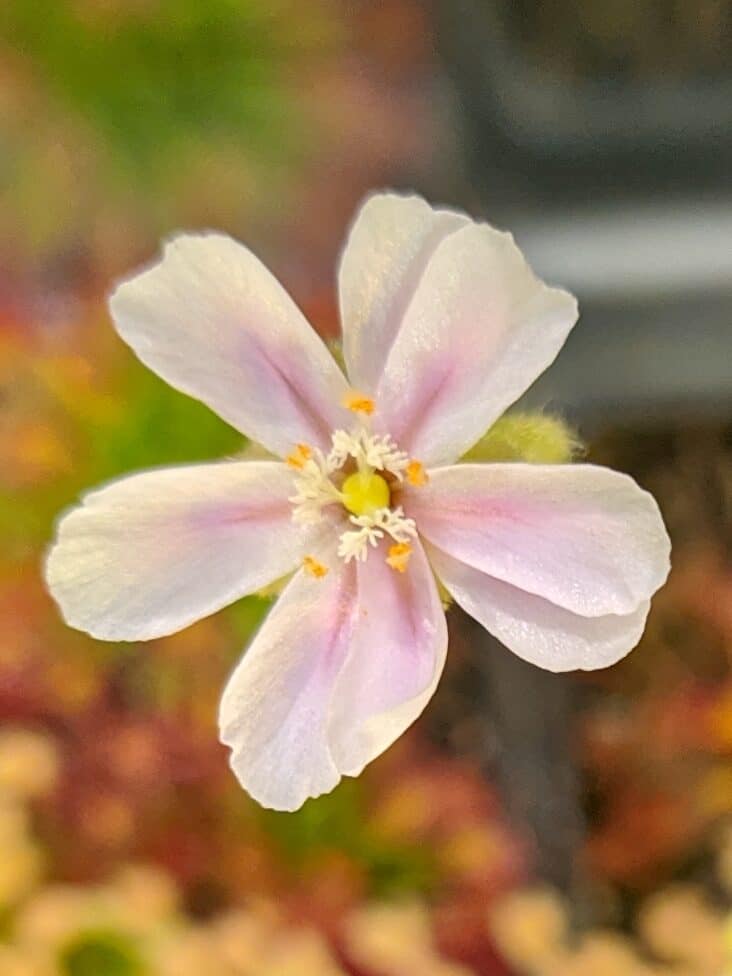
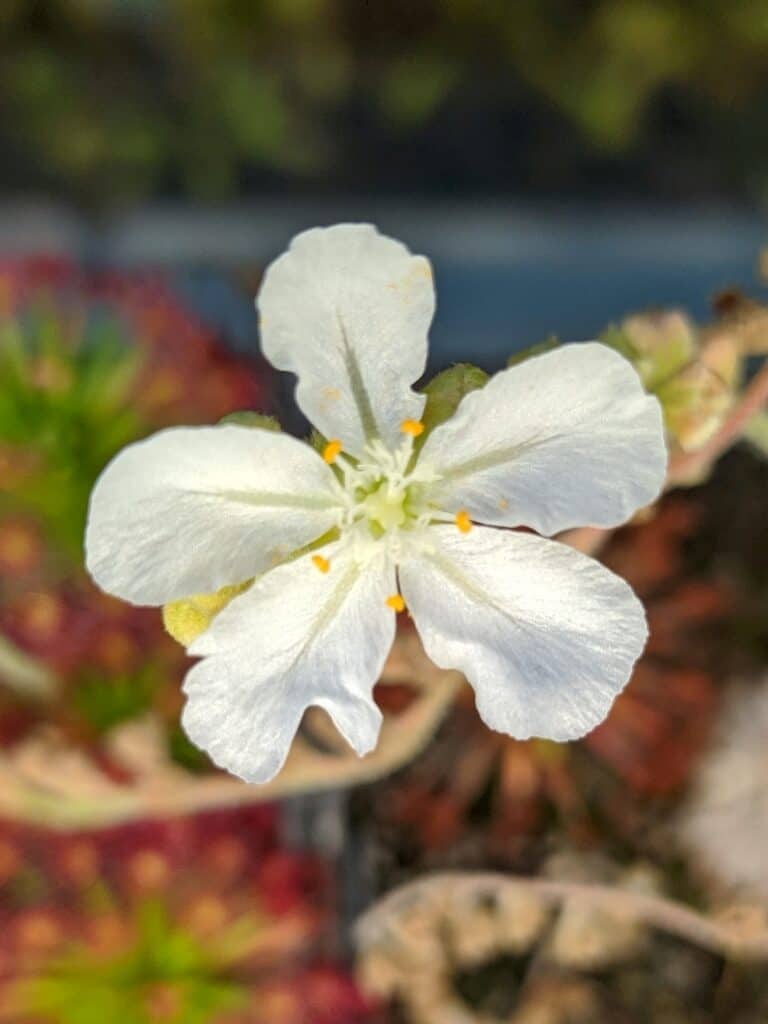
For the actual pollination, the most important parts are the clusters of pollen located on the yellow tips of the stamens around the perimeter of the flower (yellow arrow) and the white stigma, where the pollen is transferred (red arrow).
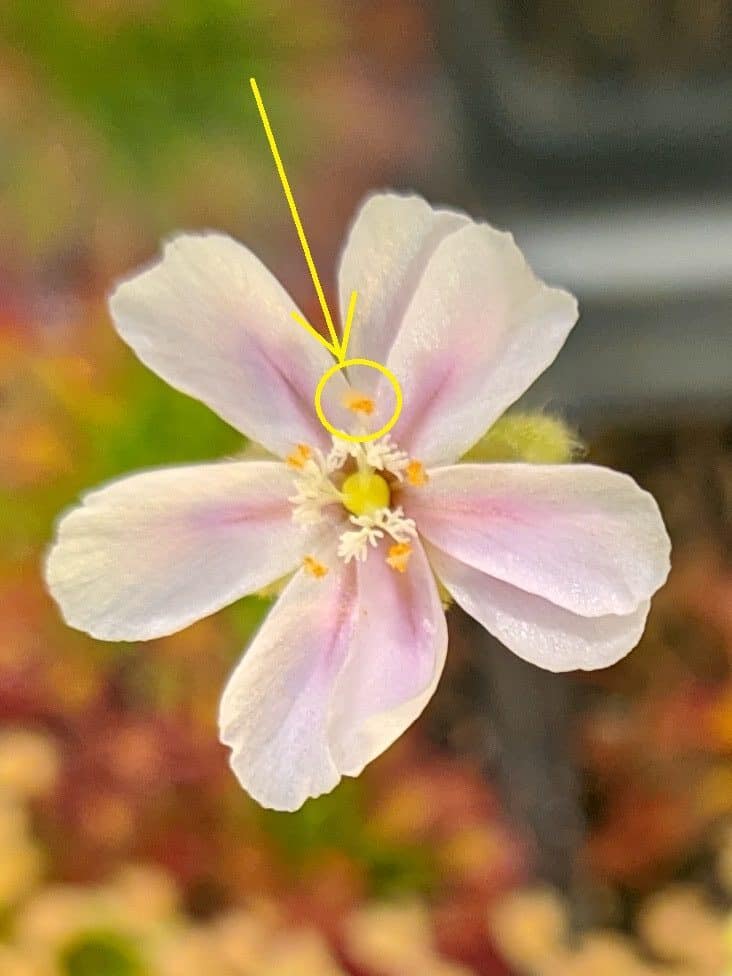
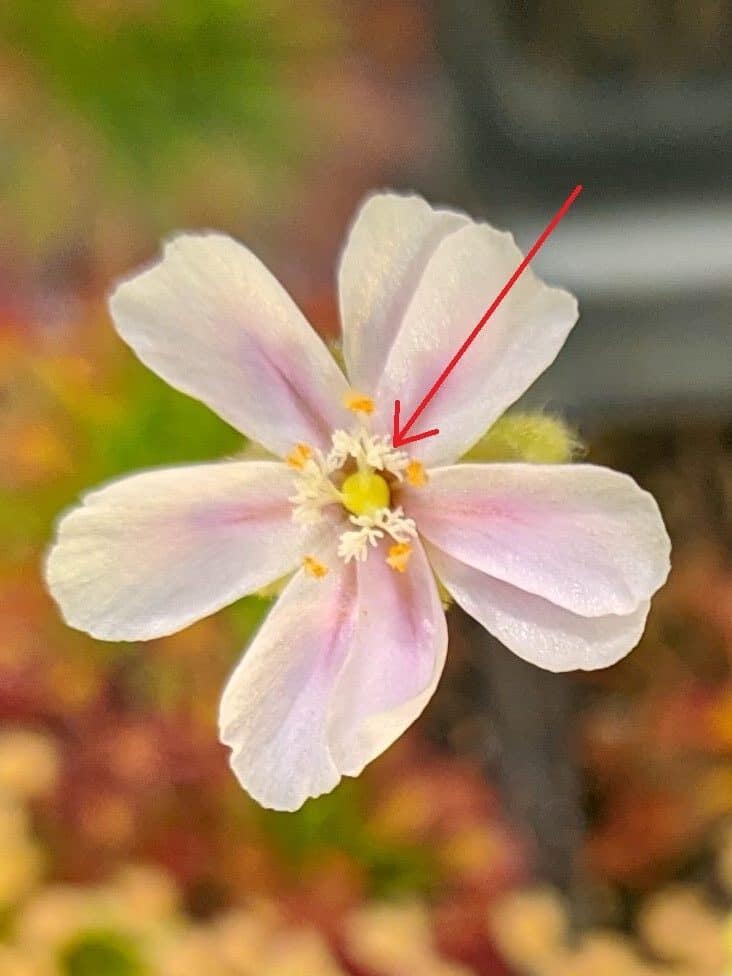
To pollinate, it is necessary to collect pollen from the stamens and transfer it to the stigma. Pollen can be transferred using a small brush or tweezers. Personally, I use tweezers. First, I grasp the stamen with pollen using tweezers and carefully remove it from the flower. If using a brush, pollen is collected from the perimeter of the flower onto the bristles.
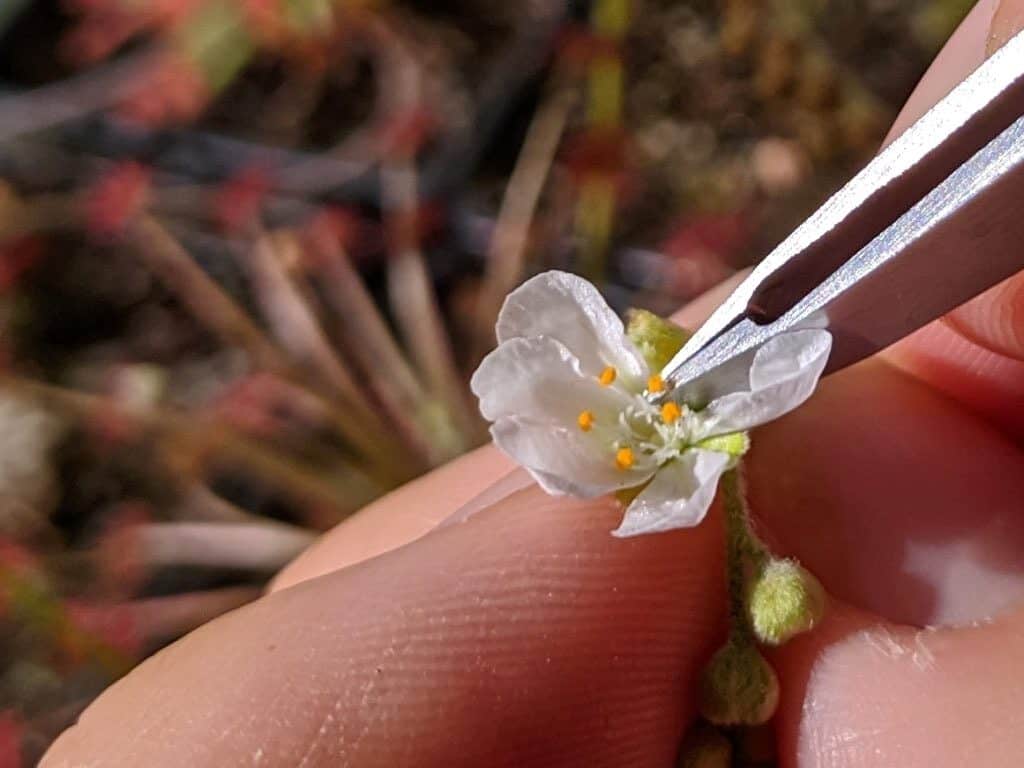
Next, I rub the pollen onto the stigma of the flower from an unrelated plant, which turns yellow from the pollen.
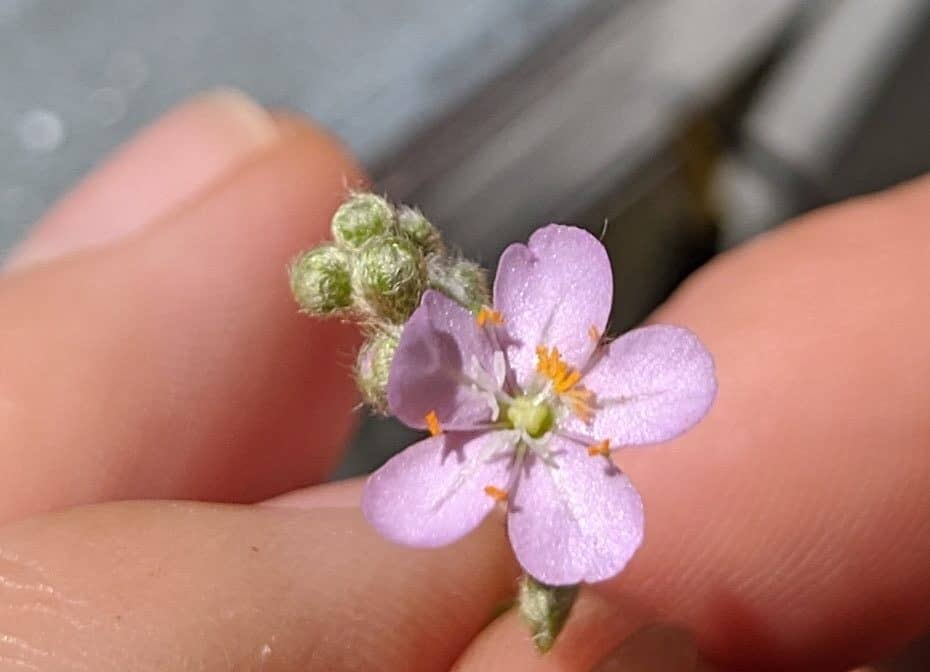
After complete pollination, no part of the stigma remains without yellow coloration.
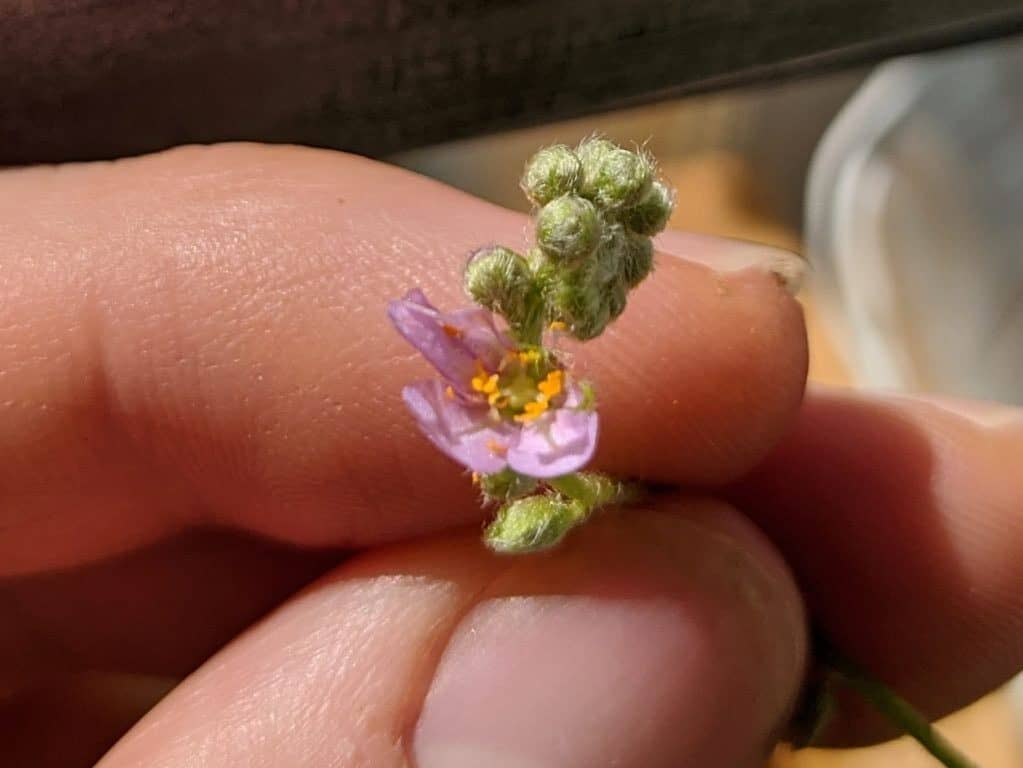
The flower will then close and gradually turn brown. If the pollination was successful, once the flowers are completely dry, you can shake out tiny, black seeds from them.

